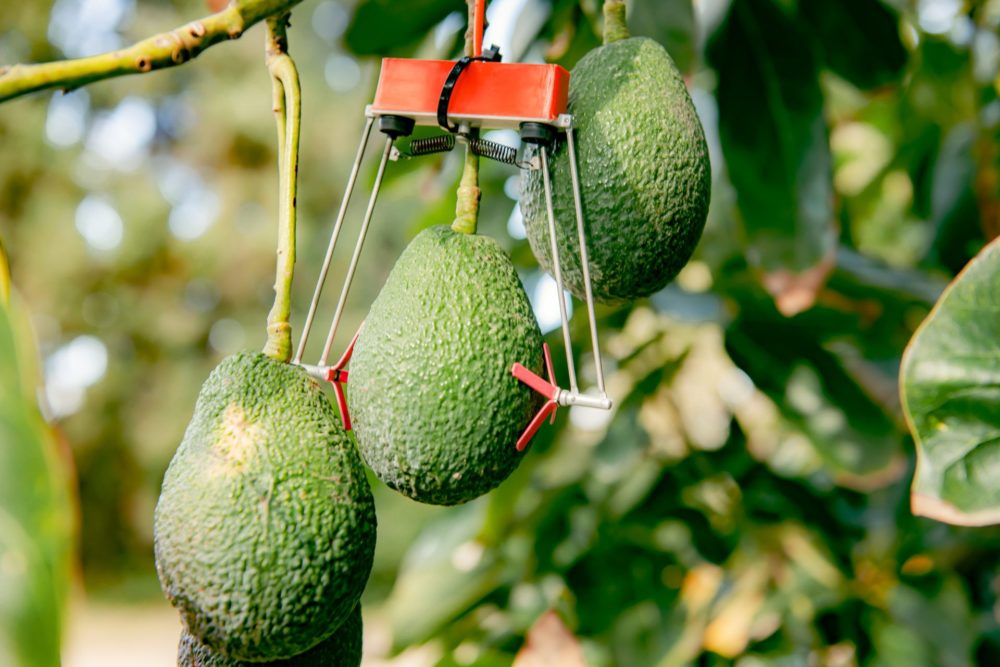Israeli irrigation tech startup SupPlant has raised $27 million for its platform that helps farmers optimize water usage and increase crop yields. Red Dot Capital Partners led the round. Menomadin Foundation, Smart-Agro Fund, Mivtach Shamir, Deshpande Foundation, PBFS, Boresight Capital and Maor Investments also participated.
In addition to expansion, funds will go towards building out the company’s new API developed for smallholder farmers around the world battling the impacts of climate change on crops.
Rethinking irrigation
The SupPlant system collects data from on-farm sensors and creates real-time irrigation recommendations for growers based on that data. This can help farmers increase yields through optimized water usage, particularly in areas where water supply has been adversely impacted by climate change.
Sensors are placed on the ground, track, leaves, foot, and fruit of the plant. The system then collects measurement data on plant size every half-hour and sends it to farmers via a digital dashboard. Changes in plant size can signal when plants are under extreme stress from, for example, a heatwave or insufficient water supply. Armed with this information, farmers can be more proactive about providing plants the exact amount of water they need, when they need it.
SupPlant’s latest funding round comes as farmers around the world grapple with volatile changes in climate that impact the availability of irrigation and therefore crop yields. For example, Morocco, a country SupPlant recently expanded to, is situated in a climate “hot spot” and likely faces increased demand for irrigation and potentially lower crop yields in the coming years. Over in the US, California’s “mega-drought” has impacted avocado production and led to higher prices for consumers. There is currently no end in sight to that mega-drought.
SupPlant’s technology can’t single-handedly end climate change. But it can provide growers and agronomists with more precise management of water versus traditional “spray and pray” irrigation methods.
Water for the other 98%
One additional complication to the water crisis is that the vast majority of farmers simply can’t afford to outfit their fields with multiple sensors and sophisticated tech systems. “Most agtech companies focus on [the upper] 2% of the farmers in the world,” SupPlant CTO Revital Kremer recently told AFN. “We decided to make our technology accessible to the other 98% of farmers as well.” That includes the world’s roughly 450 million smallholder farmers.
SupPlant recently released a new API product, a sensor-less version of its system that pulls statistical data about growing conditions in any given region of the world, from Middle East deserts to tropical landscapes in Central America. SupPlant’s API provides irrigation recommendations based on this data.
Kremer highlighted the company’s implementation of this technology in Kenya, which is under an extreme drought right now that requires farmers to walk as many as 15 miles to get water for crops. SupPlant’s API currently provides data and recommendations to 500,000 women farmers growing maize. “It’s not very trivial to get information when you’re in Kenya and you have only one smartphone throughout the village,” says Kremer of the positive impact SupPlant’s API could have on smallholder farmers.
What’s next?
The $27 million will help SupPlant further develop this sensor-less API. In 2022, the company aims to equip 1 million smallholders in Africa and India with the technology.
Funds will also go towards expanding its main smart irrigation system to new regions and markets. SupPlant currently works with 31 different crop types across 14 different countries.
“We were impressed by SupPlant’s abilities and recent expansion into strategic markets,” Atad Peled, principal at Red Dot, said in a statement. “We were also inspired by their goal: working with smallholder farms, who usually do not have access to AgTech. Food security will be a major issue in coming years, and we feel certain SupPlant’s solution will have a stand-out role in it.”
SupPlant was recently named one of TIME‘s best inventions of 2021. Its total funding including this round is now $46 million.





